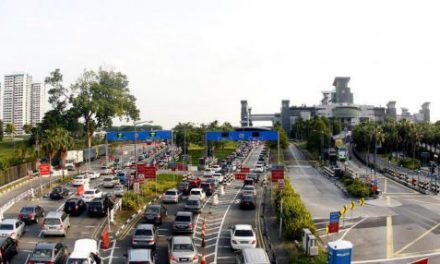LRT3 likely to resume with reduced budget and revised plan in November
The LRT3 project, which risked being shelved as a result of its cost rising by more than three times, is expected to resume in November with a reduced budget and revised plans. According to sources, there will be no change in the project delivery partner (PDP) which cements the joint venture between Malaysian Resources Corp Bhd and George Kent Bhd (MRCB-GK). The Finance Ministry (MoF) had told stakeholders to scale the cost down from RM31.65bil to RM16.63bil a few months ago. “Contractors have agreed to the new revised cost,” a source said. The revised design and contracts are expected to be firmed up before the end of October with work to continue at full steam by November. (The Star Online)
Islamic banks face outdated property rules, says industry body
Regulators overseeing Islamic banking must revise guidance on real estate exposures to align with the post-financial crisis capital rules of Basel III, a global industry body said on Sunday. The Bahrain-based General Council for Islamic Banks and Financial Institutions (CIBAFI) said treatment of real estate across Islamic finance jurisdictions still reflected previous Basel rules. A revised version of Basel III, finalised in December 2017, introduced additional requirements including concentration limits and independent asset valuations. Such requirements are important for Islamic banks as many have high exposure to real estate in both their investment and financing activities. Islamic commercial banks are estimated to hold more than $1.3 trillion in assets globally, a sector considered systemically important in countries including Saudi Arabia, Qatar and Malaysia. (The Star Online)
Tropicana Corp acquires 50.1% stake in Peluang Duta to develop township
Tropicana Corp Bhd is acquiring 50.1% stake in Peluang Duta Sdn Bhd(PDSB) for RM49.05million from four individuals, to develop a township on a leasehold land owned by PDSB’s unit. PDSB’s 70% owned subsidiary T Sanctuary Development Sdn Bhd owns 329.1 acres of leasehold land, which is strategically located in Johor and close to Singapore and other matured township developments. The land has been earmarked for a mixed development with a potential net GDV of RM4.3 billion. The overall proposed development component comprises 70% residential and 30% commercial, which includes terrace houses, shop offices, urban affordable homes, serviced apartments as well as an international school. (The Sun Daily)
Consumer spending to wither from 4Q
Consumer spending – which accelerated during the tax holiday period from June to September – is expected to decline from the fourth quarter (4Q18) onwards following the implementation of the sales and service tax (SST) on Sept 1, say economists. Domestic demand driven by the private sector is seen as one of the main drivers for GDP growth, which came in at 4.5% in 2Q18. Consumer spending is expected to taper off in the later part of the year, but is nevertheless expected to fuel growth, albeit at a slower pace. Continued wage growth of 6.15% in the first half of the year is expected to be sustained into the second half, and this will boost the domestic spending. In addition, less items covered in SST will hopefully translate into lower prices for excluded items and boost consumer purchasing power. (The Edge Markets)
PUMM: Govt policies should benefit all
The government should implement a “rakyat’s agenda” for the benefit of all and not just one ethnic group, says Malaysia Entrepreneurs’ Development Association (PUMM). Citing the bumiputra discount for allocated units in new launches of property, PUMM president Datuk See Kok Seng said it was a deterrent to the housing sector, and had been abused in many cases. “Many genuine non-bumiputra buyers are prevented from purchasing these reserved lots,” he said. See also said policies to be implemented should benefit and help enhance all businesses and not just one sector. Levies and taxes are imposed as a contribution to help the people and boost the economy. He pointed out that over the past 15 years, business was getting tougher due to globalisation and stiff competition. As such, local entrepreneurs appreciated the much needed assistance to enable their businesses to do well. (The Star Online)





